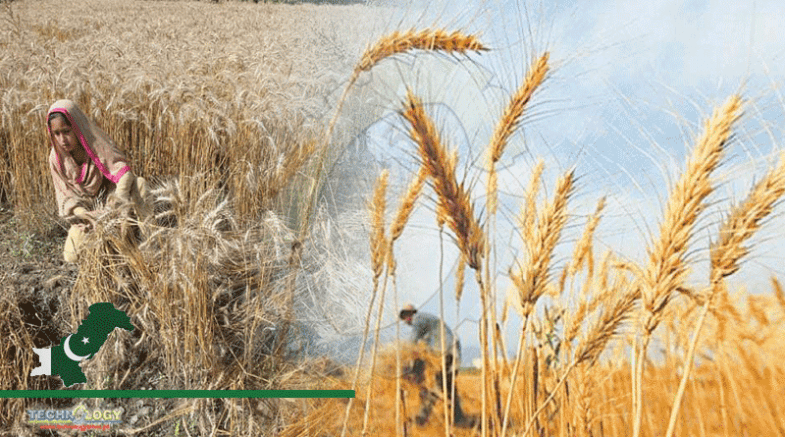Farmers to impose ban on interprovincial movement of wheat as anti-farmer, ill-advised and detrimental to interests of farmers and consumers.

The Sindh Chamber of Agriculture and the Sindh Abadgar Board, two major representative organisations of farmers, have termed food department’s decision to impose ban on inter-district movement of wheat as anti-farmer, ill-advised and detrimental to interests of both farmers and consumers.
The chamber’s vice president Nabi Bux Sathio said in a statement issued on Sunday that the ban on wheat movement had been imposed through Section 144 CrPC. The decision would only support private buyers and hoarders who were purchasing the commodity at a price hovering around Rs1700 to 1800 per 40kg, he said.
He said that as Sindh government had fixed support price for wheat at Rs2,000 per 40kg for 2020-21 the food department would hardly be able to procure even one fourth of the total harvested crop, therefore, imposition of the ban was nothing but exploitation of growers.
Surprisingly, he said, the food department had neither established wheat procurement centres nor it was buying the grain from growers.
He said the growers could lend support to government’s initiative to impose ban on interprovincial movement of wheat but restricting movement of wheat within the province was simply unjustifiable and condemnable.
He urged the government, Pakistan Peoples Party chairman Bilawal Bhutto-Zardari and Sindh chief minister to lift the ban and give opportunity to growers to get adequate price for their crop.
Sindh Abadgar Board’s vice president Syed Mehmood Nawaz Shah also condemned the ban on inter-district movement of wheat and said the step would seriously harm interests of both growers and consumers.
In a letter addressed to Sindh minister for food on Sunday, Shah said that district food controllers of Sanghar and Matiari had issued letters to administration asking it to ban the inter-district movement of wheat.
He said that this strategy had proved to be harmful and it had led to drop in wheat price from Rs2,200 per 40 kg to Rs1,800 per 40 kg and the price might further slide if corrective measures were not taken.
He said the Sindh government’s initiative to fix wheat procurement price at Rs2,000 per 40 kg was appreciable but the ban would stop its benefits from reaching the farmers.
He said that Sindh government had set wheat procurement target at 1.4 million tonnes, which came to around 32 per cent of anticipated wheat production of 4 million tonnes.
He said that wheat harvest had started since March 1 and was in full swing but the department had not opened even a single purchasing centre while decisions like the ban were encouraging hoarders to purchase wheat at a price much lower than the official procurement price.
Shah said that SAB believed measures should have been taken to allow wheat crop to reach areas including Karachi where flour was being sold at Rs75 per kg so as to help bring down its prices and not the other way round.
He said that growers sold their crop at Rs35 per kg last year but flour prices remained intact at Rs62 per kg.
He urged the government to lift the ban and open wheat procurement centres before the crop was stocked up by hoarders. He said the government should regulate total stocks of wheat so that consumers were provided affordable wheat.
Originally published at DAWN
